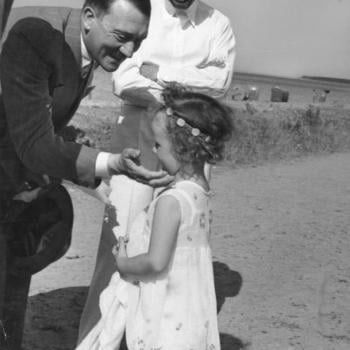Literary Christian Fiction: Where Is It? (Some Examples)
I have always been a fan of good novels. Not necessarily classics (although I’ve read some and enjoyed them). I like historical novels and especially ones that have some something to do with Christian history or where the characters (or at least one) are serious Christians and not stupid or sinister. An example—that I really enjoyed—is entitled simply “Q” and is published by Mariner Books (2005). The author is “Luther Blissett” which is a pseudonym for a literary group of authors that also sometimes publish under the name “Wu Ming.” It’s about the Reformation and especially radical reformers being persecuted by both Catholics and Protestants. I would compare it to The Name of the Rose by Umberto Eco or even one of his other books Foucault’s Pendulum.
But none of those gripping historical novels are examples of what I mean here by “literary Christian fiction.” They’re great novels full of suspense (which I love) and some of the characters in them are serious Christians. In none of them do the authors really represent Christianity in a positive light. That is, they are not really written from a Christian perspective.
What I look for, but usually fail to find (it’s like a treasure hunt), are novels with real suspense, engrossing realistic narrative, written from a Christian point of view, in which at least some of the main characters are serious Christians. And in which their Christianity is treated with at least respect. (All that is to day I’m not looking for “Amish Romance” novels or anything like that.) Such truly literary Christian novels are hard to find.
*Sidebar: The opinions expressed here are my own (or those of the guest writer); I do not speak for any other person, group or organization; nor do I imply that the opinions expressed here reflect those of any other person, group or organization unless I say so specifically. Before commenting read the entire post and the “Note to commenters” at its end.*
Whenever I bring up this subject and ask for suggestions, someone mentions Gilead by Marilynne Robinson. I read it and was somewhat disappointed. Not because lacks literary quality and not because it doesn’t take Christianity seriously. It does (have literary quality and takes Christianity seriously). The only thing it lacked—for me—was the element of suspense, of tension, of mystery.
And one more element I like and look for (but do not require): I like novels in which the protagonist is a good father—not abusive, secretive, sinister, or stupid. So, let’s move on to three good examples of book like I’ve described above that I absolutely loved and will read again and possibly again. (And look for other novels like them.)
First, I was absolutely bowled over by Michael D. O’Brien’s The Father’s Tale (Ignatius Press, 2011). This one met all of my desires for good, literary Christian fiction. It’s a (long) story of a Catholic father searching around the world for his missing son—who he thinks was brainwashed and taken in by a religious cult. But it’s a multi-layered story and not at all one-dimensional. The good father struggles much with his faith but it is what sustains him through his many losses and struggles.
Second, I also absolutely loved Peace Like a River by Leif Enger (Atlantic Monthly Press, 2007). It’s a literary novel about family, faith, tragedy, hope, and trust in God. It has both suspense and humor and the reader has to love the father (a devout Christian) and his children. The author takes the father’s profound Christian faith in God very seriously without portraying it in a simplistic or artificial way.
Third, and finally (for now), my all-time favorite of the genre I’m describing here is a novel that seems to have gotten very little attention and deserves more. If you like the genre I’m describing, you absolutely must read Ordinary Grace by William Kent Krueger (Atria Books, 2013). Krueger is best known for his Minnesota-based crime and detective novels featuring fictional police officer Cork O’Connor. So far as I can tell Ordinary Grace is his only novel that is not part of that series. It is set in Minnesota in the 1960s. The town of New Ulm is called (in the novel) “New Bremen,” but anyone familiar with New Ulm (as I am) recognizes it immediately.
The main character of Ordinary Grace is a Methodist minister whose Christian faith is rock solid even as it is tested by tragedy. What I like about this book, besides the engrossing mystery at its heart, is the authenticity of its treatment of Protestant Christianity.
All three of these books I could hardly put down. All three touched me very deeply—as a Christian and as a father who finds too few really good fathers in literary fiction.
Especially if you liked Peace Like a River—an award-winning novel much reviewed and discussed in the year or two following its publication—you must read Ordinary Grace. I simply cannot understand why it has not gotten more attention; it’s a superb novel with all the elements I’ve described above.
If you know of similar books (to those three) please post their titles, authors, and publishers here and tell what’s good about them.
*Note to commenters: This blog is not a discussion board; please respond with a question or comment only to me. If you do not share my evangelical Christian perspective (very broadly defined), feel free to ask a question for clarification, but know that this is not a space for debating incommensurate perspectives/worldviews. In any case, know that there is no guarantee that your question or comment will be posted by the moderator or answered by the writer. If you hope for your question or comment to appear here and be answered or responded to, make sure it is civil, respectful, and “on topic.” Do not comment if you have not read the entire post and do not misrepresent what it says. Keep any comment (including questions) to minimal length; do not post essays, sermons or testimonies here. Do not post links to internet sites here. This is a space for expressions of the blogger’s (or guest writers’) opinions and constructive dialogue among evangelical Christians (very broadly defined).

















